Image Carousel with 11 slides
A carousel is a rotating set of images. Use the previous and next buttons to change the displayed slide
-
Slide 1: United Nations and International Organizations Roundtable Conversations General Photo
-
Slide 2: Professor Daniel Naujoks
-
Slide 3: United Nations and International Organizations Roundtable Conversations General Photo 2
-
Slide 4: United Nations and International Organizations Roundtable Conversations - Reception
-
Slide 5: United Nations and International Organizations Roundtable Conversations - experts
-
Slide 6: United Nations and International Organizations Roundtable Conversations - experts
-
Slide 7: United Nations and International Organizations Roundtable Conversations - experts
-
Slide 8: United Nations and International Organizations Roundtable Conversations - experts
-
Slide 9: United Nations and International Organizations Roundtable Conversations - experts
-
Slide 10: United Nations and International Organizations Roundtable Conversations - experts
-
Slide 11: United Nations and International Organizations Roundtable Conversations - experts
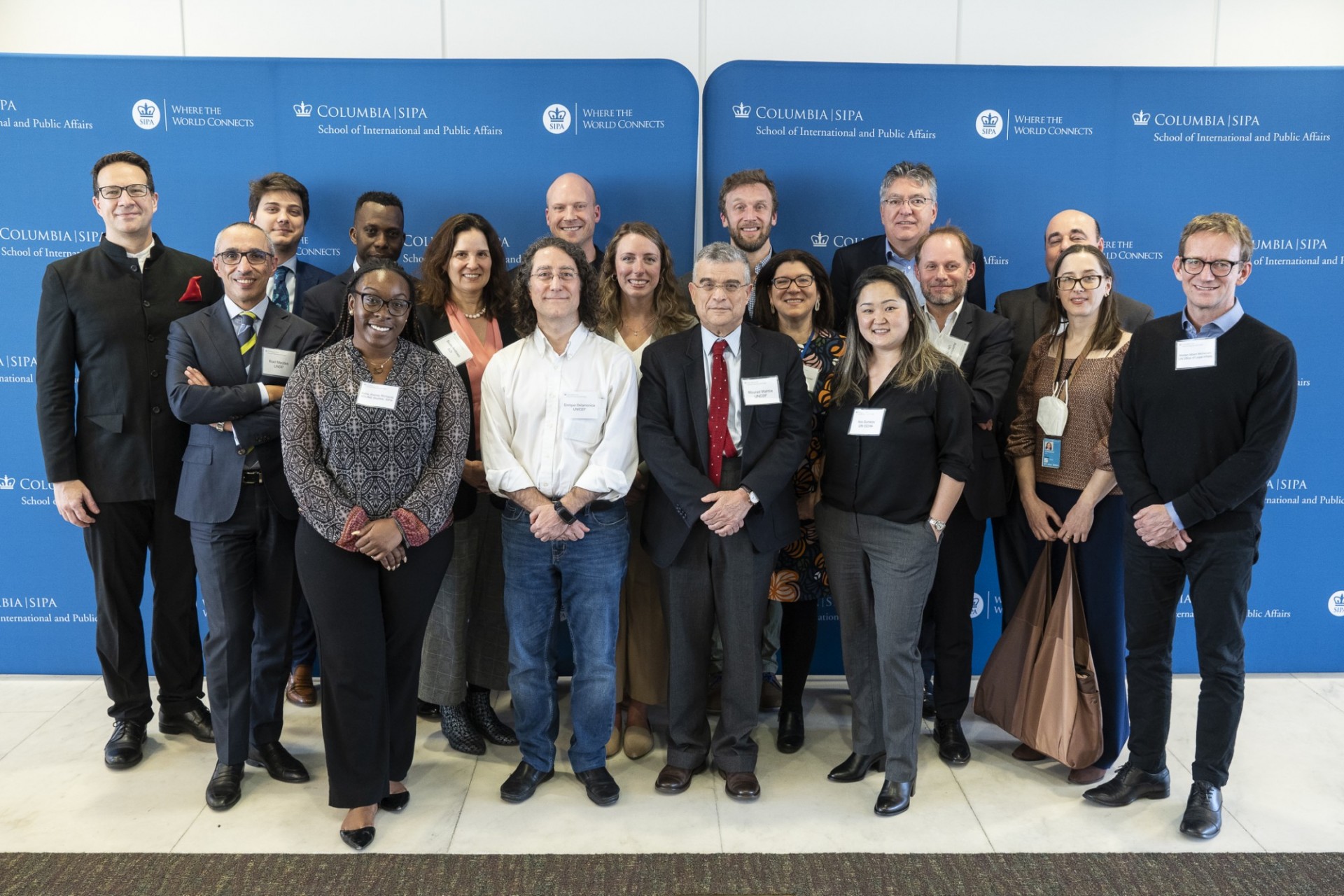
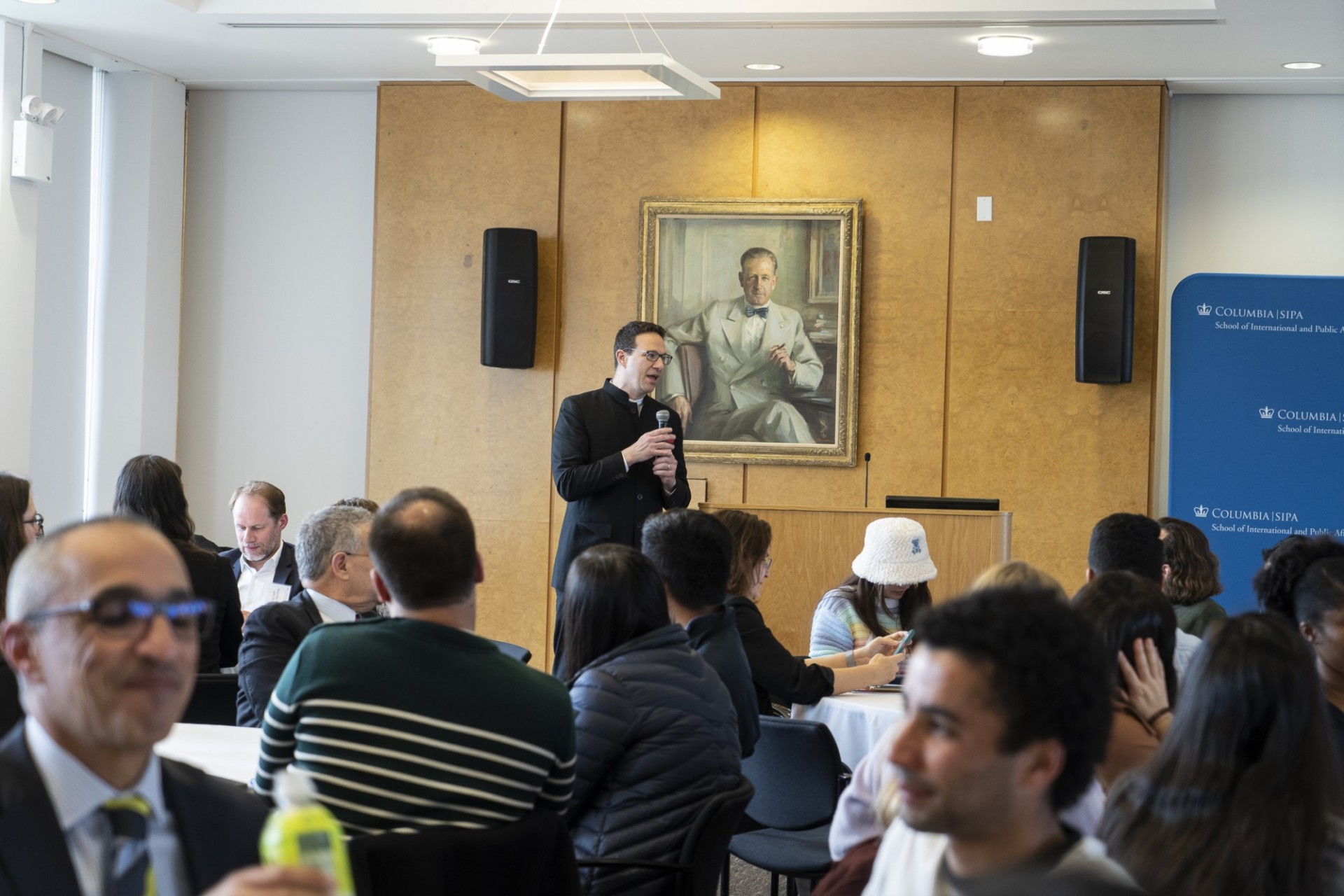
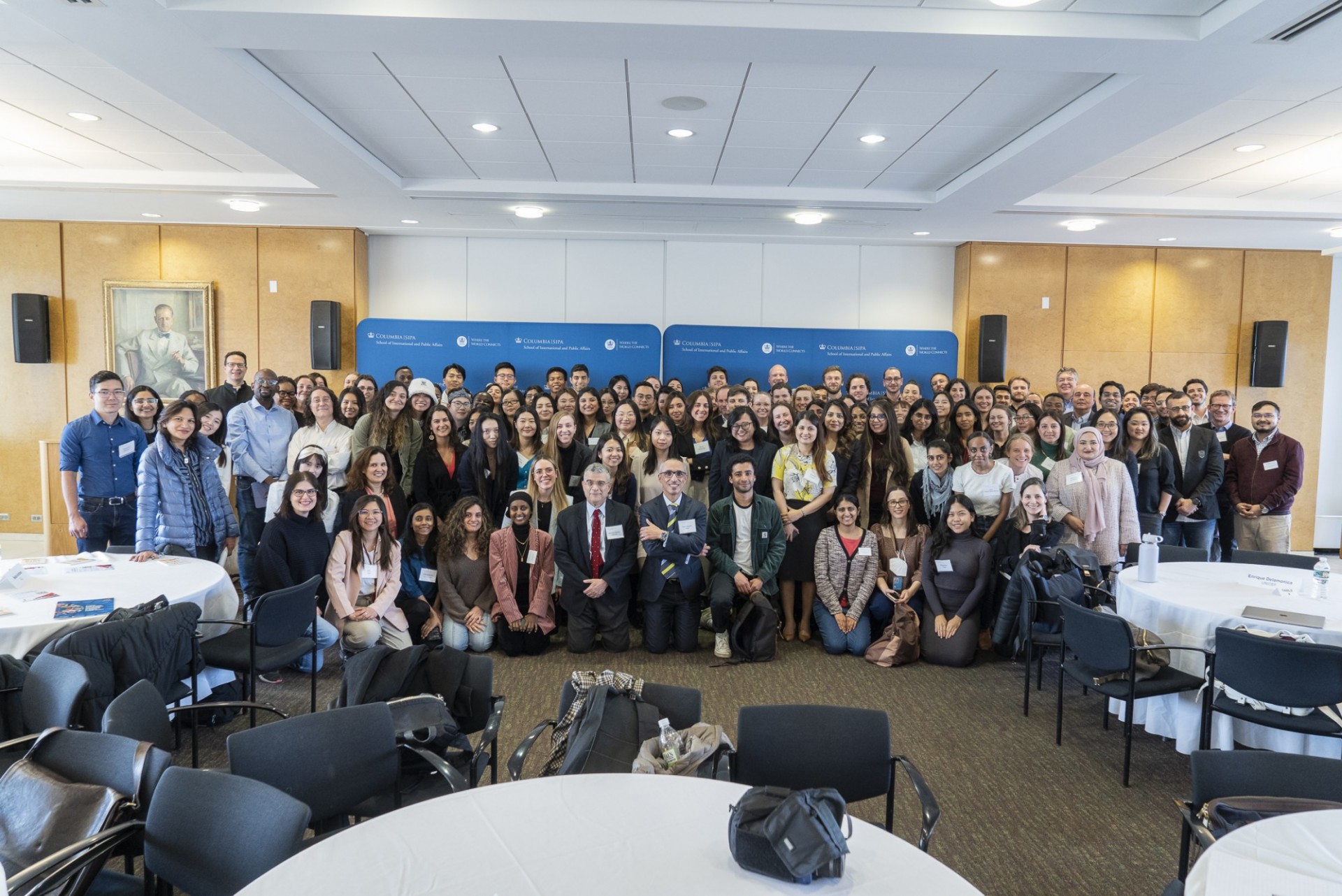
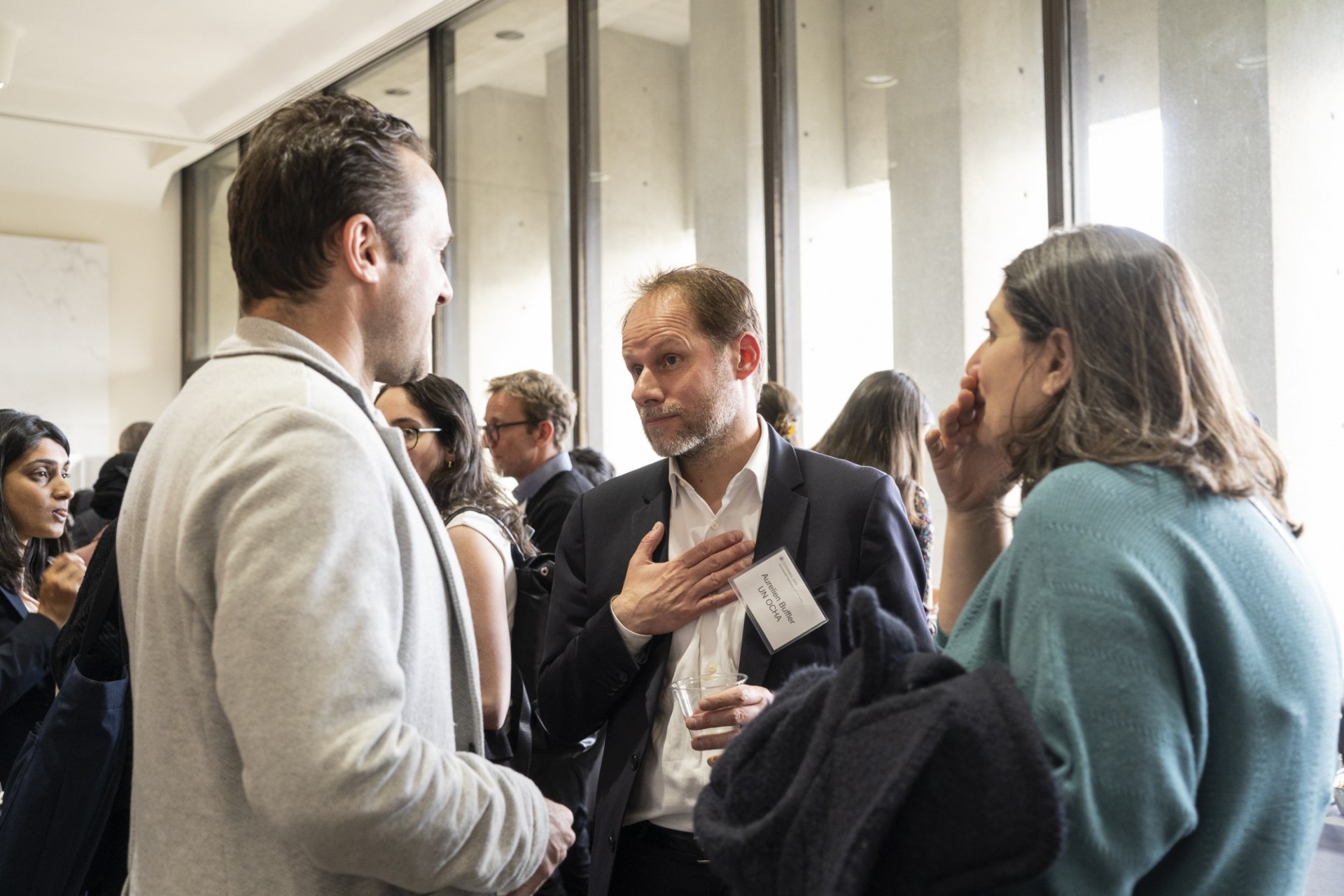
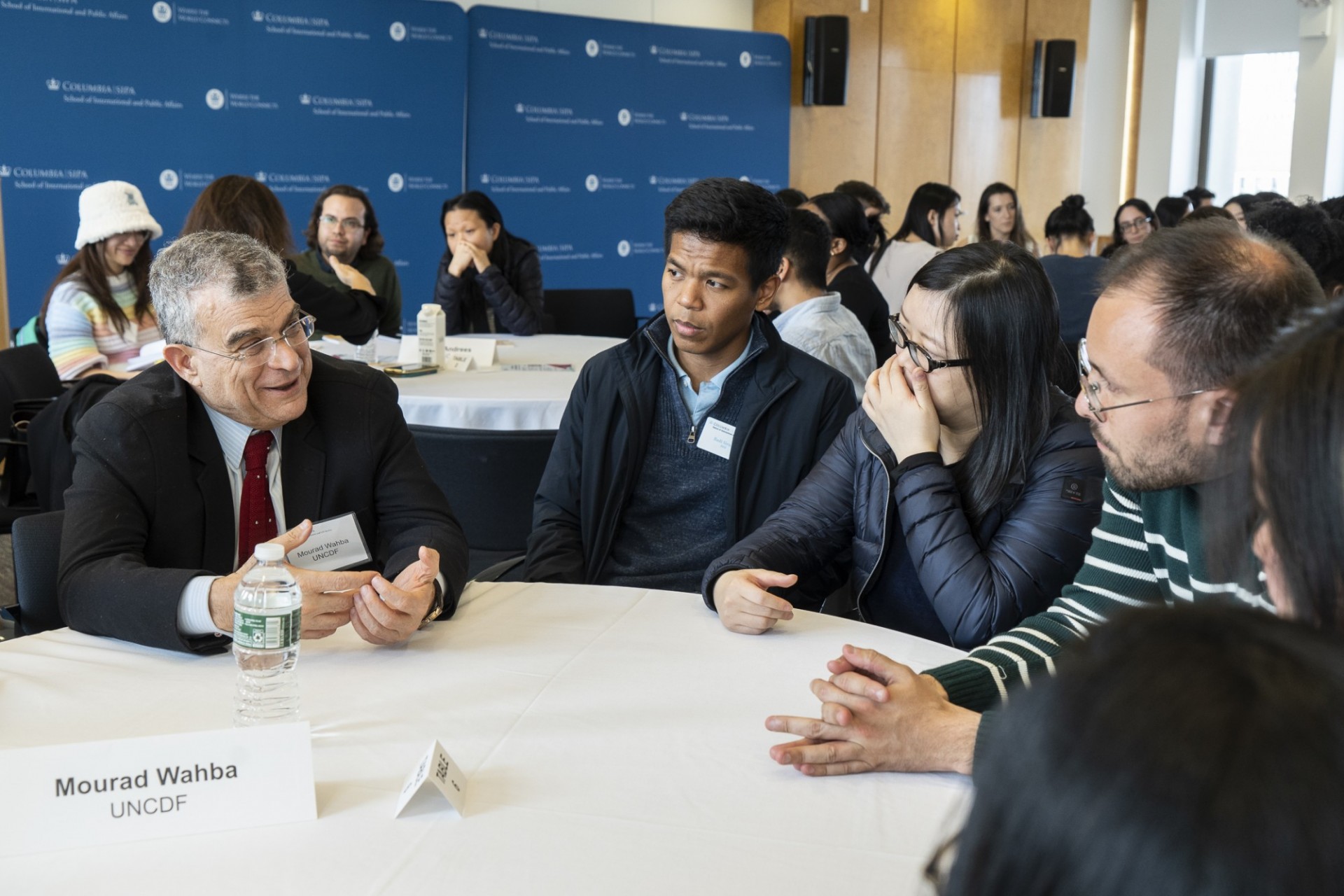
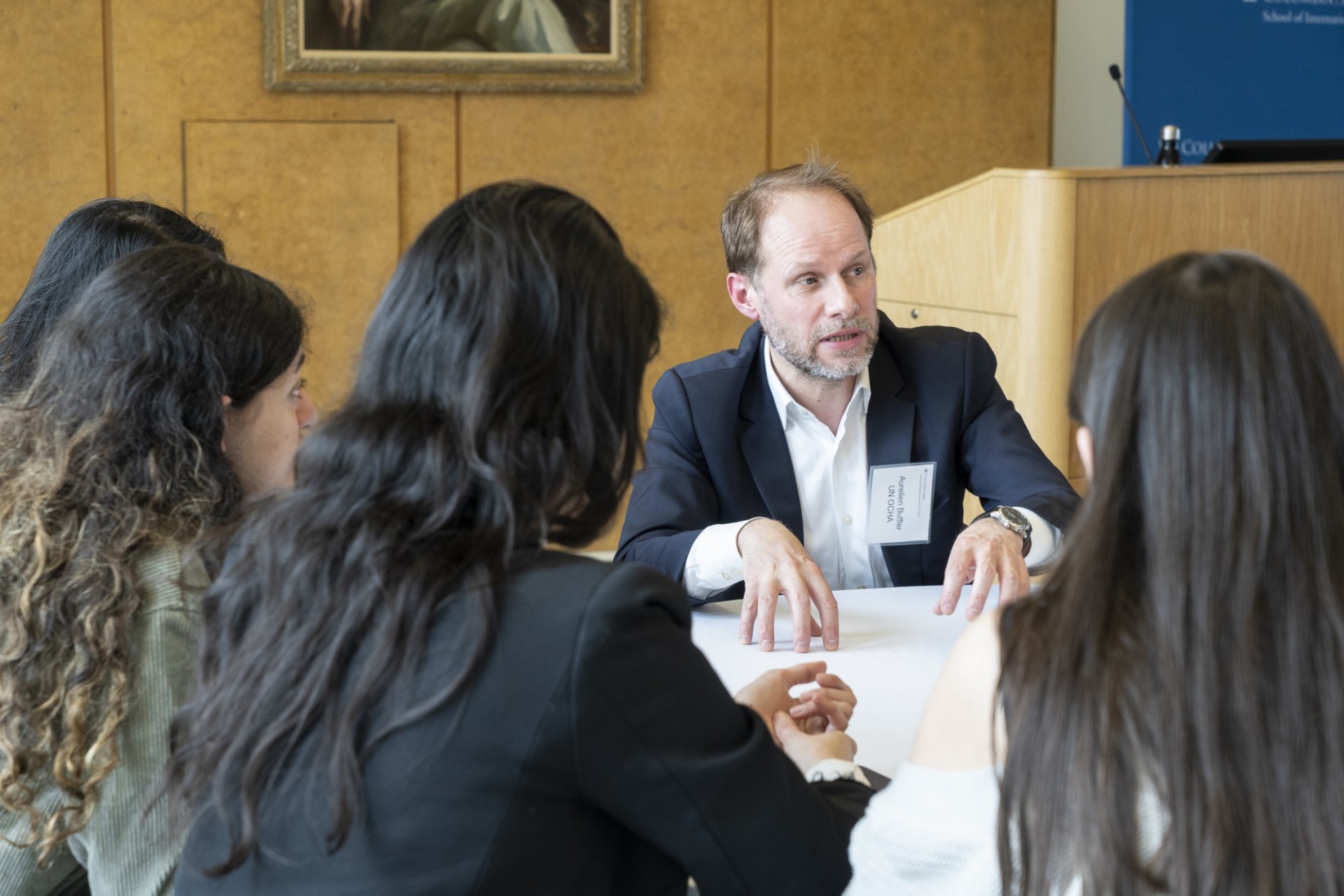
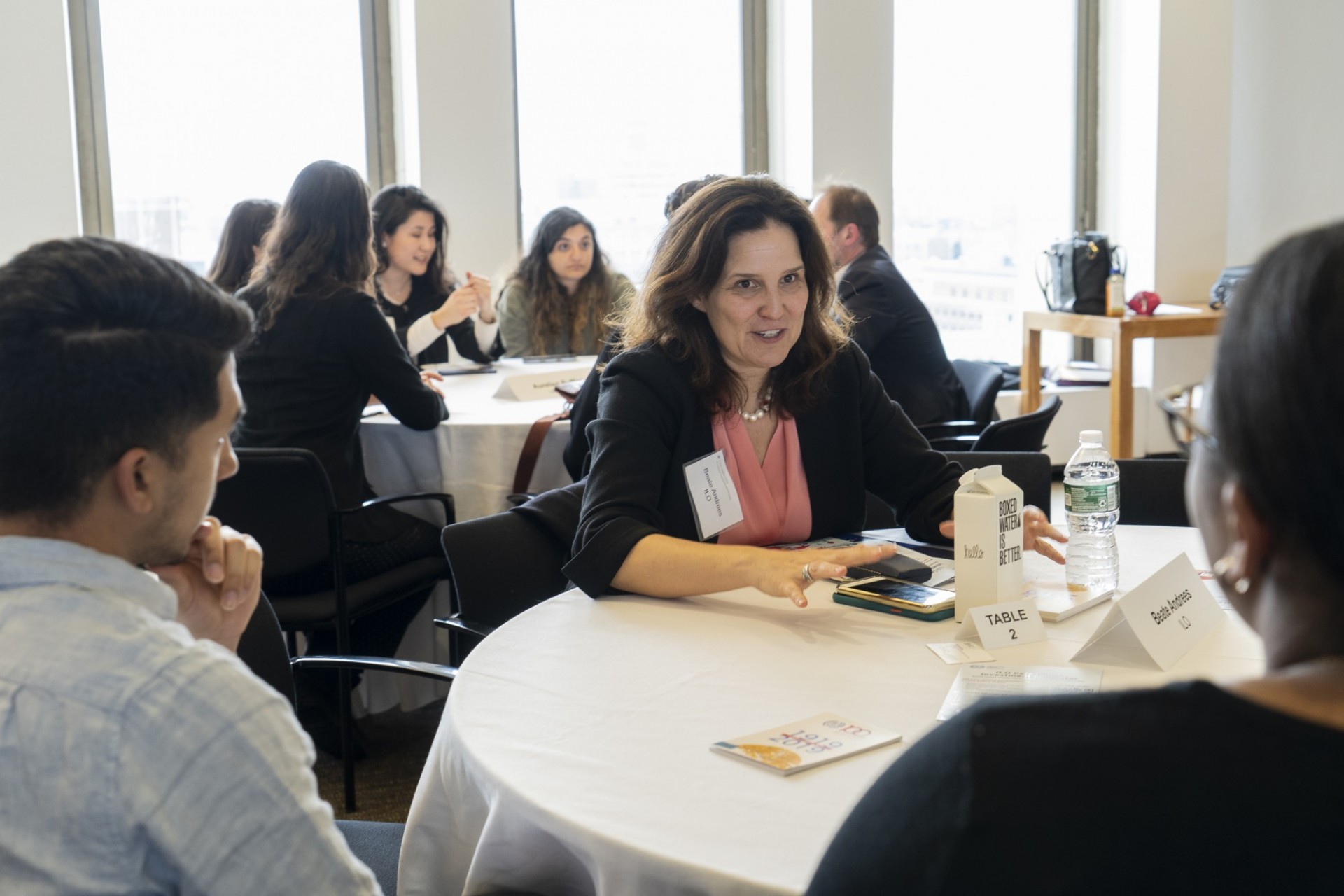
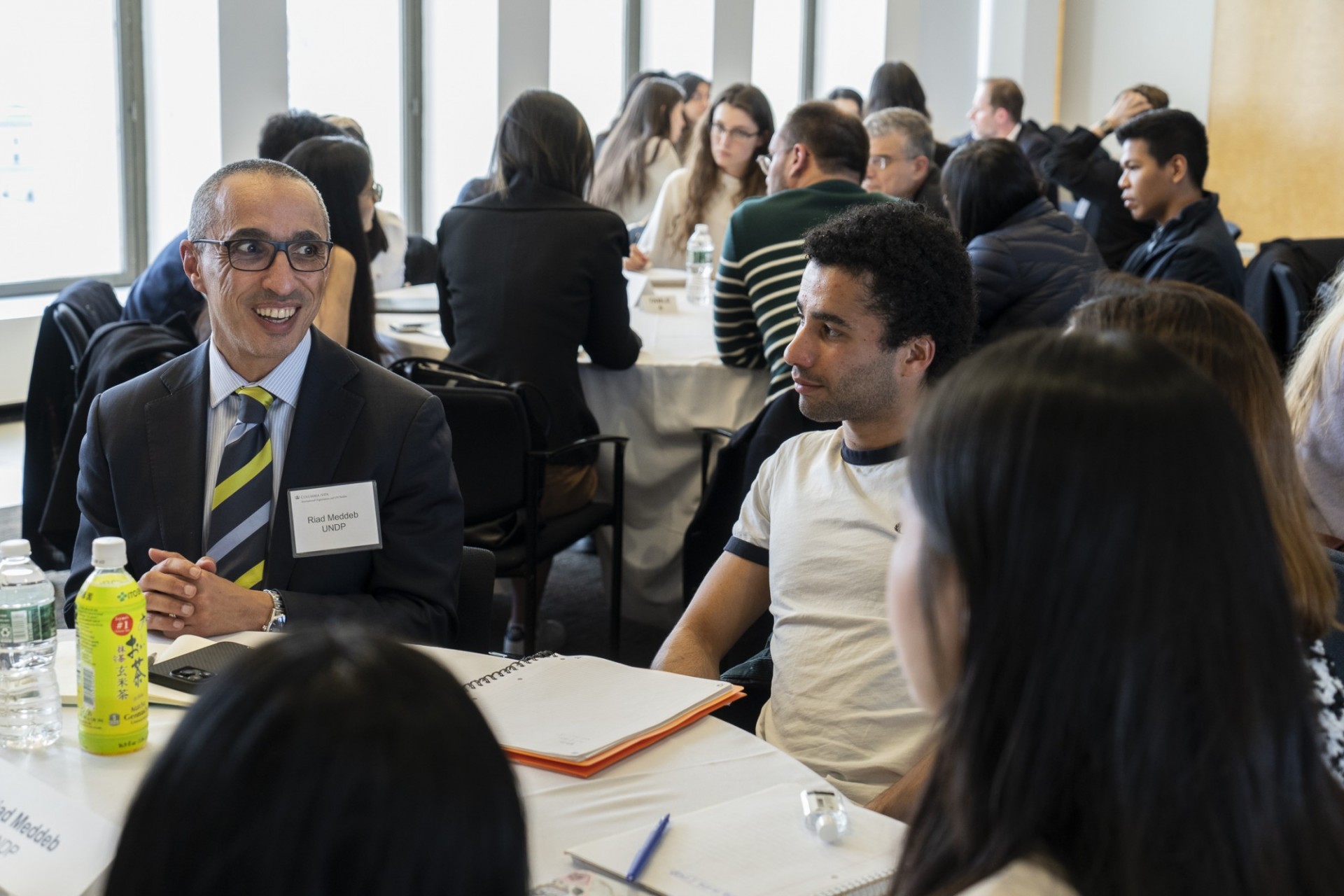
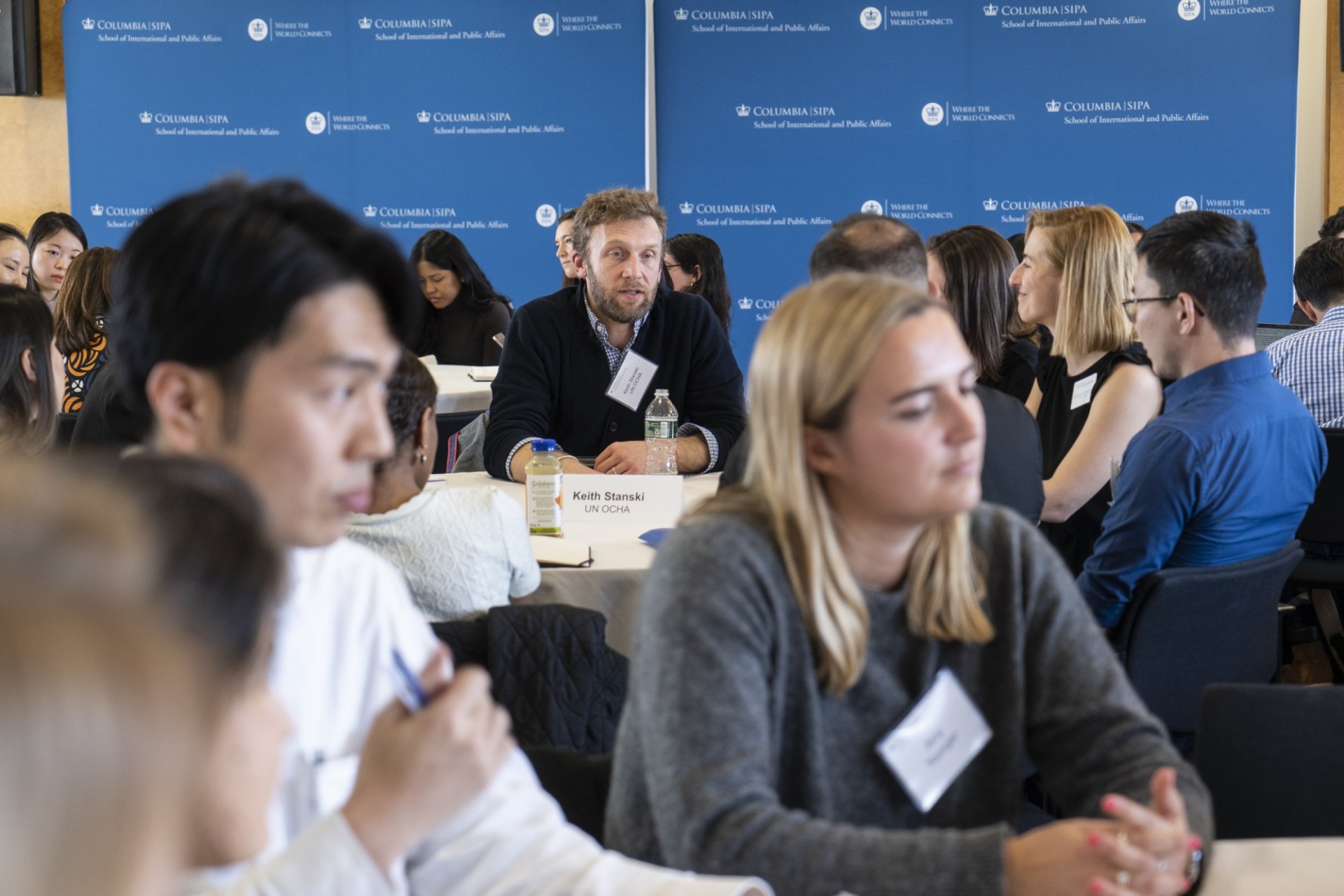
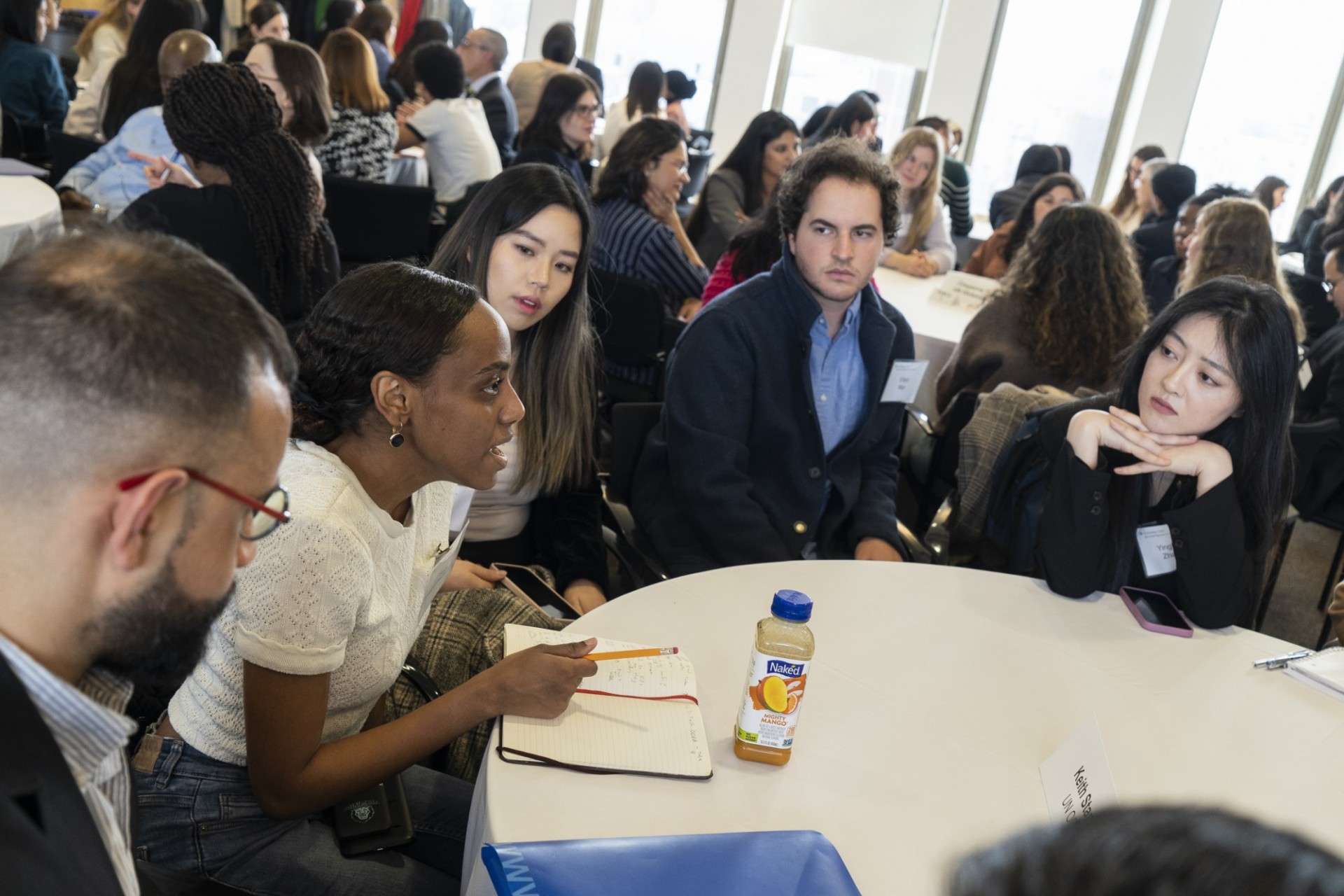
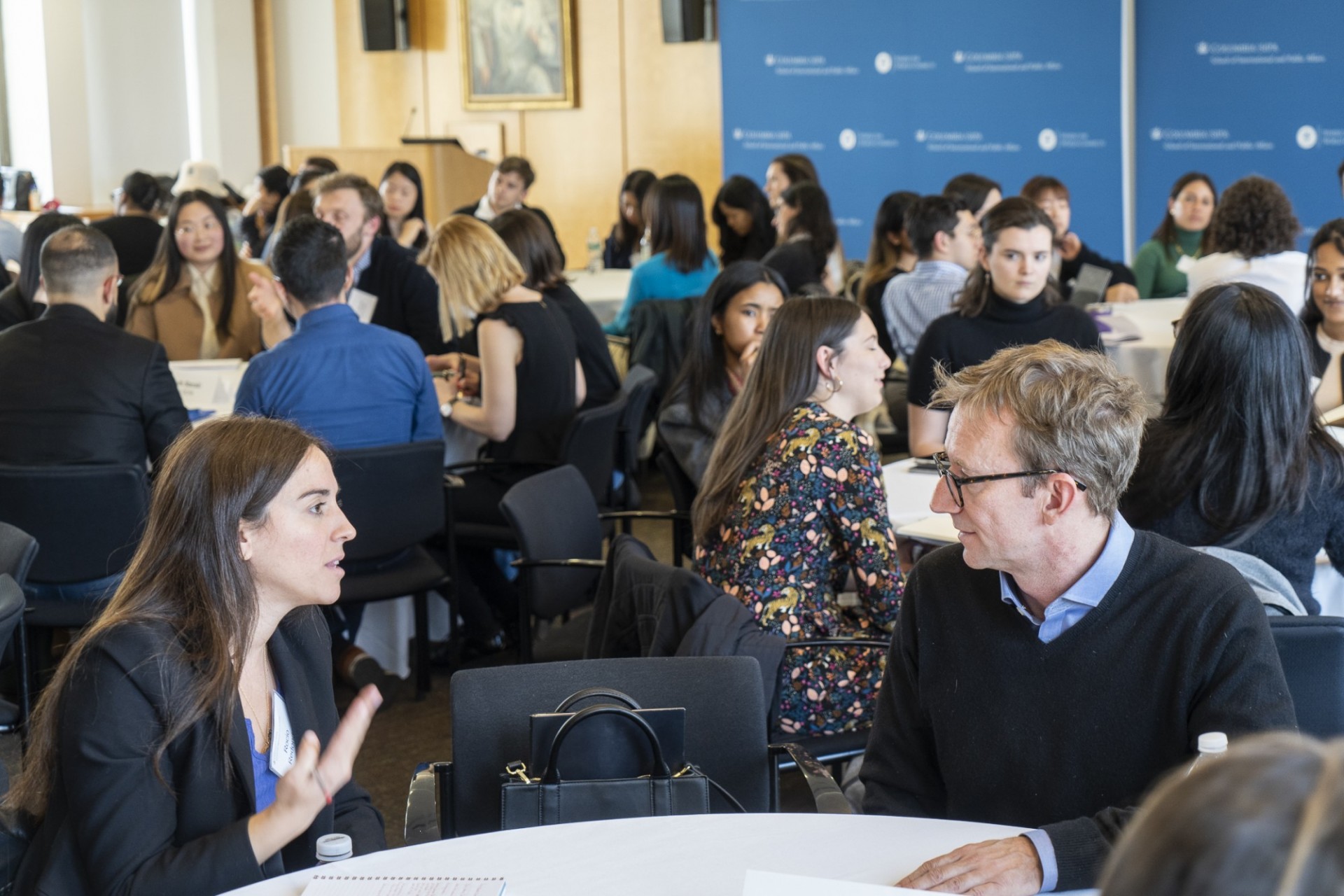
The United Nations and International Organizations Roundtable Conversations and subsequent reception brought together more than 150 students of Columbia University’s School of International and Public Affairs (SIPA) with 20 United Nations experts.
After two years of organizing the event in a virtual format, on March 22, 2023, experts and students were able to once again connect for in-person exchanges. Seated at roundtables and joined by small, rotating groups of students, the experts discussed their work and how the United Nations’ various bodies promote peace, human rights, sustainable development, humanitarian action, gender equity, social justice, private sector involvement, environmental resilience and cooperation among states and various stakeholders. Moreover, students received valuable career advice regarding the most successful ways of finding internships and managing UN-specific workload.
Understanding the human face of the UN’s operations
Daniel Naujoks, the director of SIPA’s International Organization and UN Studies program, who organized the event, recalls a quote by Dag Hammarskjöld, the second UN Secretary-General, who said that everything will be alright “when people, just people, stop thinking of the United Nations as a weird Picasso abstraction and see it as a drawing they made themselves”. In other words, a personal connection to the inner workings of the various parts of the UN is critical for making sense of the “patchwork art” that forms the UN system.
Hammarskjöld’s portrait overlooked the proceedings on the top floor of Columbia University’s International Affairs Building as 150 students engaged seasoned international civil servants to “broaden their understanding of how international organizations shape our world, and how students might one day play a role in these organizations,” as observed by Sharif Kazemi (MIA ’24), the president of SIPA’s student-led United Nations Association and co-host of the event. “The intimate roundtable format empowered students to smoothly transition between a range of brilliant experts. I myself was able to learn from humanitarian response workers with years of experience in the field and high-level liaison officers working in New York,” Kazemi continued.
Over the course of the evening, each student took part in three different roundtable conversations, enjoying the opportunity to interact with staff members from a broad range of international organizations, including UNICEF, the International Labour Organization (ILO), the UN Development Programme (UNDP), the UN Capital Development Fund (UNCDF), the UN Global Compact, and the UN Office for the Coordination of Humanitarian Affairs (OCHA). Other specialists represented various parts of the UN Secretariat, namely the Department of Economic and Social Affairs (DESA), the Department of Political and Peacebuilding Affairs (DPPA), the Department of Peace Operations (DPO), and the Office of Legal Affairs (OLA).
A transformative experience for students
Natalia Kanos (MPA ‘24), President of SIPA’s Black Student Association, assessed the roundtable conversations as “one of the best events I have attended.” “Learning about the experts’ day-to-day lives, current projects, and general advice was an amazing experience and helped me make better-informed decisions about my career path.”
First year Executive MPA student Candice Liang described attending the event as “a transformative experience.” Liang, who is also pursuing her PhD in Psychology and serves as a Youth Representative at the UN’s Economic and Social Council, concluded that “the insights and ideas shared by the speakers were incredibly impactful, and I left the event feeling inspired and motivated to take action.”
Refreshing and thought-provoking experience for UN experts
The students were not the only ones who left the conversations inspired. Dr. Mourad Wahba, who heads the UN Capital Development Fund (UNCDF) and until recently served as UN Under-Secretary-General and acting Associate Administrator of UNDP experienced students’ enthusiasm as refreshing. Most importantly, Wahba appreciated “the very strong ethical concern of the students, complementing their knowledge base. We do not discuss the ethics at the basis of our work, and I really want to thank the students for reminding me of this imperative.”
“It was a profound pleasure meeting students of so many different countries and backgrounds asking thought-provoking questions,” expressed Beate Andrees, Director of the International Labour Organization (ILO) Office for the United Nations. Also Riad Meddeb, Director of UNDP’s Sustainable Energy Hub “was impressed by the level of students’ preparedness. Based on their astonishingly deep knowledge of sustainable development, they asked the tough questions that we at UNDP grapple with every day.”
The change they’ll bring to the world
Based on his interactions with the students, Meddeb looks “forward to working with them in future,” and according to Andrees, “these roundtables are always a good test whether our organizations will attract talent of the future, and I left the event with a lot of optimism in this regard.”
Late that night, at the end of the reception, as the last remaining students and experts continue their engaging conversations on UN careers and the scope, challenges, and pitfalls of multilateral cooperation, Naujoks concluded: “I couldn’t be prouder of our students, who show time and time again that they are prepared to ask the tough questions. They don’t accept the status quo and they have the passion, the skills, and the work ethic to use multilateral institutions to create a better and fairer world. I can’t wait to see the changes they’ll bring to people and the planet.”
About the authors
Aurelian D. Mohan is a Program Assistant for Columbia-SIPA’s UN Studies Specialization. He worked with or for UN-Habitat, UNECE, UN DPO, and PwC. In addition, he acted as a chief adviser to multiple members of the Romanian Government. He can be contacted on LinkedIn.
Asha Richards is an IO/UNS Program Assistant and MPA student in the Development Practice program, specializing in International Organization and Latin America. She was also recently elected the Northeast USA representative of the Global Jamaica Diaspora Youth Council.
The views and opinions expressed in this think-piece are those of the authors and do not necessarily reflect the official policy or position of SIPA or Columbia University.
